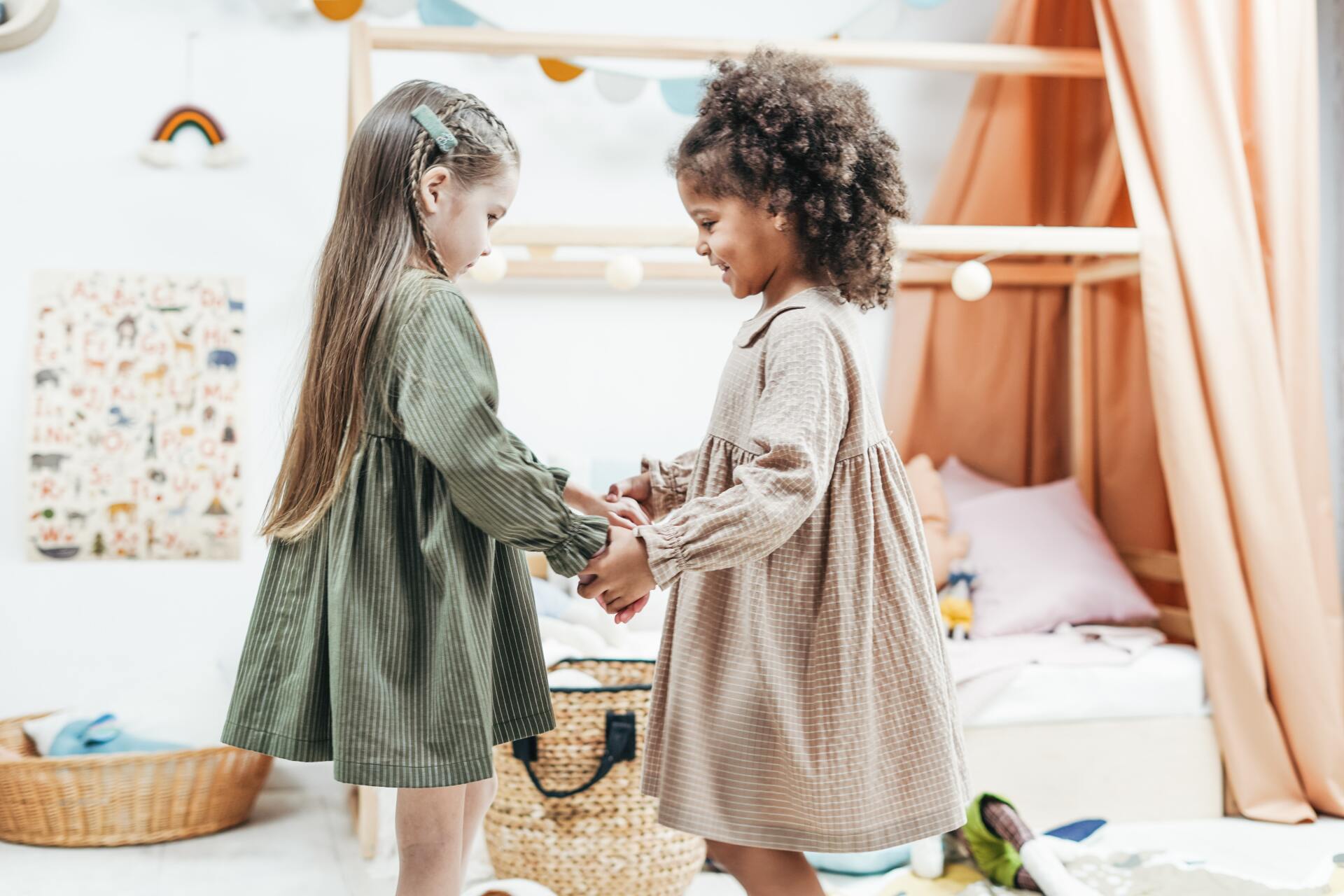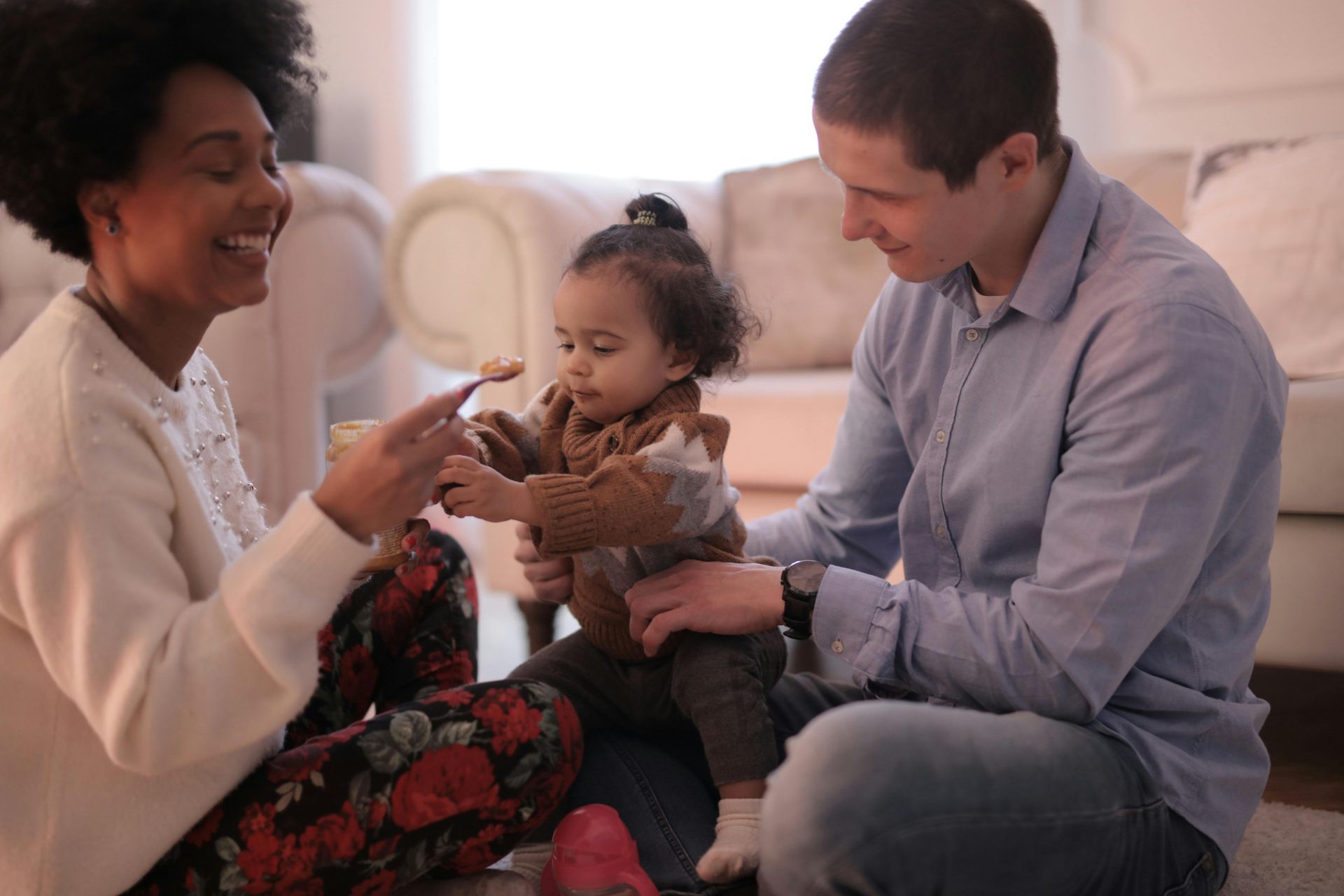“Mama, will I ever see Matt again?”
I’ll be honest. A year ago, I never would’ve predicted that our busy lives would grind to a halt, that school would be a fond memory, or that my daughter would ask that question of me in all seriousness. But that is precisely where I found myself a week ago.
My daughter and her bestie have been separated for months now, and it’s hitting her hard. In the beginning, we’d scheduled a few distanced playdates, but those were even more anxiety-provoking for her with four adults constantly reminding her and Matt to “give space.”
“It’s just not the same,” she explained. “I miss my friends. Not just seeing their faces. I mean I miss giving them big hugs and chasing them around the playground and reading books with them. I miss being with them.”
PARENTING IN A PANDEMIC HAS RAISED MANY UNHEARD-OF CHALLENGES, AND FINDING WAYS TO FOSTER SOCIALLY DISTANCED SOCIALIZATION IS A BIG ONE. .
Even writing that — “socially distanced socialization” — feels absurd (and not just because it’s an oxymoron). But it’s an absurdity that we tolerate because it’s the best we can do to meet a very real need. Humans are hardwired to connect with other people. Introvert or extrovert, young or old, everyone needs consistent touch points with other humans. And while isolation may have been fine for a month or two back in March, by this point, it’s a whole different ball game. Kids aren’t just craving connections with their friends and family. They need them.
Parents always ask me if their kids are missing out on socialization. (They are.) If this isolation is damaging. (It is.) If the damage is irreparable. (Good news: it’s not!)
BUT SOCIALIZATION IS HUGE WHEN IT COMES TO DEVELOPING SKILLS LIKE SHARING AND EMPATHY AS WELL AS ACADEMIC LEARNING
But socialization is huge when it comes to developing skills like sharing and empathy as well as academic learning (a topic I discuss in my podcast with Kristin Valerius, Ph.D.). So that means we parents have to get creative. Depending on your parenting style, you might rely on regular FaceTime chats, an option that allows kids to connect with lots of their friends, risk-free. Or you might prefer IRL dates and find it easy to stay six feet apart when everyone is on a bike or scooter outside.
In cases like that of my daughter, we bubbled with one other family from the get-go to ensure that she’d have a constant, real-life, in-person, huggable friend. I can’t give her back her whole class, or even Matt, but I can give her one human being to talk and play with, minus the constant cost-benefit analysis every outing seems to require these days. (Looking at you, grocery store!)
WAYS TO SAFELY RECONNECT
When it comes to setting up playdates in a pandemic, keep in mind what’s really possible for your kiddo. If he’s a hugger, you may want to stick to digital meetups for now. (No point in setting him up to fail.) If he’s older and has more self-control, you might try an in-person date. Here are some more ideas to get you started:
- Host an outdoor dance party. You can set up a “dance blanket” for each kid with a safe, six-foot distance between them. Then crank the music, and let them get down on their individual dance mats.
- Put pen to paper. Writing letters to friends and relatives is a great way to stay in touch. Who doesn’t love getting (fun) mail?
- If you have a baby but need some socialization yourself, pack a lunch, head to the park, and meet up with a friend. You can socially distance on separate blankets during your picnic playdate.
Whatever you choose to do, recognize that parenting is tougher than usual these days. You have to find opportunities for your kids to connect with others, yes, but you also have to honor your priorities while doing so. Safety and socialization don’t need to be mutually exclusive, but they can’t be equally important either.
And, no matter what you do or don’t do, give yourself a little grace. We all need plenty of that, too, these days.
















